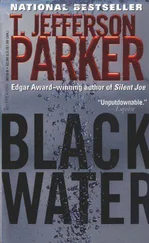‘Choose for us,’ he said. Before she even spoke, he knew she would order something that included fruit.
After taking their order up to the bar, the waiter returned with some tiny glass bowls containing toasted biscuits. Rita picked up a bowl and tipped some into her hand. ‘Want some?’
He shook his head, staring out at the beach where, between them and the fake fishing boats, three young women in bikinis were lying very close together on a large grass mat, like sausages in a pan. Wandering past them was a young white couple in patterned baggy trousers, the man bearded and tall, the woman skinny and short; hand-woven bags slung over their shoulders, bracelets on their wrists. They would not be sunning themselves all day long, nor would they buy cigarettes or alcohol in Duty Free on the way home. They would go home with luggage full of sarongs and woodcarvings. They would learn please and thank you in Indonesian and use them on every possible occasion, whether it was appropriate or not. They would tip as generously as their backpacking budget allowed and they would always, always, behave respectfully in temples.
But when they got home, the young couple would do exactly what the three young women would do. They would buy houses, cook food, drive cars. The fuel for those cars would come from somewhere and it would come via the pipes built by the sort of company that employed companies like his in order to ensure the safety of their investments and their staff.
He remembered first arriving on the island, November ’65. It had been a relief to get off Java, the Jakarta job done. At Tuban airport, as it was called back then, he had handed over an extortionate bribe to a man in a suit and sunglasses in order to evade a queue that had built up in front of a group of soldiers whose purpose in questioning passengers disembarking from the domestic flight was unclear.
The operative doing his handover was waiting for him outside the low building, his car parked at an angle halfway up the kerb. He shook Harper’s hand, said, ‘Welcome to Bali. Call me Abang. You got through quickly.’
‘It wasn’t easy,’ said Harper, pushing his glasses back up his sweating nose.
The area around the airport was surrounded by construction in the shimmering heat. No amount of political chaos ever stopped the building works. The new regime would be hoping for international flights as soon as possible, once it had defeated the Red Menace — and he had no doubt it would all flow, flow on the shiny new planes landing on the shiny new runways. First came the massacres, then the arms and the money and the economic advisers, then the runways — then, the tourists.
‘Congratulations,’ Abang said. ‘A good start. They should make it some kind of test.’ He meant the Institute.
‘Well,’ Harper said, ‘there’s a lot more people trying to get out than in.’ He had passed through a huge crowd of families on their way to Departures.
They got into the car. He didn’t know much about Abang at that point but later found out he was an Indo like him, mixed-race, an older man who had picked the right side in the war and, unlike Harper and his mother, hadn’t had to flee back to Holland in ’46 — useful to the Institute in the same way he was, for being a bit brown. He was based in Sumatra but had been touring the Eastern Islands to do an advance report while Harper had been doing Jakarta. Although they had never met before, Harper felt an instant affection for him, reciprocated by the invitation to call him Abang: big brother.
Abang nodded at Harper’s observation as they joined the queue of cars trying to get in or out or go round and round the airport — in the crowd of vehicles, it was hard to tell. The smell of aeroplane fuel mingled with exhaust and cigarette smoke. Everyone had their windows rolled down, their arms hanging out — occasionally, a driver would shout or gesture in a desultory fashion. It was a slow kind of chaos.
As they sat looking straight ahead, Abang said, ‘It’s going to be just as bad here, you know, it’s on its way. Funny how people know and don’t know.’ He nudged the car forward a couple of feet. ‘You want to go and rest a bit? Do the briefing after?’
‘No, let’s get on with it.’
‘Okay, good, let’s go and do it with a beer.’
They drove straight to Sanur. Abang wanted Harper to see the Bali Beach Hotel, under construction for two years now. They had a beer together in a bar opposite the site while he explained how the building of the hotel had caused trouble locally ever since it started. Suteja had given the best contracts to his friends in the PKI, which had led to a lot of resentment. Control of the tourist industry was going to be as hotly contested as control of the rice harvest. ‘The PKI have got it all wrong. They are putting all their effort into land reform for the peasants but the peasants aren’t even grateful and the foreign dollars aren’t going to come for rice, they’re going to come for sand.’ Abang indicated the beach in front of them with an open, palm-upwards gesture.
Harper thought of the charred corpse he had seen hanging from a tree by the side of the road at a crossroads just before Jakarta airport. The sign around the neck read: Gerwani . ‘You really think anyone is going to want to come here, after what’s going on here hits the news in Europe and America?’
Abang had given a humourless yelp. ‘ Hits the news? In any case, you’ll find blood sinks into sand really fast.’ He lifted a copy of Suara Indonesia from his bag, folded to the editorial. He tossed it onto the table between them and jabbed a finger.
Harper looked at the paper and Abang translated the headline of the editorial out loud. ‘Now It Is Clear Who Is Friend and Who Is Foe.’
He looked at Abang and raised his eyebrows. ‘How long do you think we have?’
‘You mean in general, or here?’
‘Here.’
Abang wobbled his head from side to side, a small balancing movement. ‘Two weeks, three at most, maybe less, maybe a lot less.’
‘Really?’ Harper had been assuming he had a little more time. What was the point of him coming over from Java to do reports if it was almost underway?
‘Rumour has it the Brawijaya Units are due next month.’
‘Who’s in command?’ Harper asked.
‘Sarwo Edhie.’
Harper was silent for a moment.
‘Yes, that’s what I thought too,’ Abang said. He lifted his beer bottle to his lips. Harper did the same. He felt something, then, some thrill of fear — had it been a premonition of what was to come? Or was it simply that the adrenaline of witnessing what had happened in Java had drained, just a little, with his arrival on the island, and he was now feeling a shiver of weakness at the thought of the danger that would soon be evident here? He had better get his adrenaline levels back up pretty soon, particularly if Abang moved on and he was the only one reporting back. If they closed the airport it would mean a boat to another island, dangerous enough in itself, or more likely lying low in the hills until things blew over.
‘Have they started collecting names?’
Abang shook his head. ‘They’ve been doing that for some time. Anyone in the PKI or any of the other Communist groups is out of a job, in the government sector anyway, schools, civil service, they’ve all gone, family members too, any association will do. They are building up the lists, village by village. Two weeks I reckon, before it starts. They may not even wait for the army.’
‘The lists.’
Abang lifted his beer bottle in a dry salute. ‘There’s always a list.’
There was an unspoken acknowledgement between Abang and himself, Harper thought. There was always a list; often more than one. The army, the Islamists and the nationalists were all drawing up lists of Communists to kill. The Communists would have their own lists, and if the 30th September Movement had succeeded, Harper had no doubt that he and Abang and anyone else with European or American connections would have been on it. Their brown skin wouldn’t have saved them, not considering who they worked for, not now it was clear who was friend and who was foe.
Читать дальше












